- Home
- Andy McNab
Dead Centre ns-14 Page 4
Dead Centre ns-14 Read online
Page 4
‘Shut the fuck up.’ I stood up and pressed the heel of my boot into his groin, just above the wound. I pushed down with both hands on my knee. He groaned with pain. We both knew it was too late. We needed surgical clamps to stop it.
My torchlight fell on his face. His pupils didn’t react to the light.
‘Nick, remember what you promised.’
‘Shut up. You’re going to fucking look after her yourself.’ I pushed harder. ‘BB!’
Blazing tiles fell from the ceiling. The heat got more intense as the flames licked closer. I was starting to choke on the smoke. I had to bend down further. But I wasn’t going to release the pressure until he was dead. I knew it was useless. He knew it was useless. But that didn’t matter. I’d fucked up. I shouldn’t have let him go and take on the looters.
This was all I could do for him now.
He fought to get the words out. ‘Remember … Tracy …’
‘Of course I’ll look after her, you stupid fucker …’
He went quickly. No reaction to the pain. He just closed his eyes and that was it. Life had leaked out of him.
19
I lifted my boot and touched my hand to the wound. There was no blood pumping out any more. It had all gone. The smoke was just a metre off the floor. Staying on my knees, I shoved my hands under Mong’s armpits and dragged him towards the staircase. I could feel the air rush up from the smashed windows below. The flames were sucking it in.
Mong was too big to pick up and put on my shoulders. His legs bumped behind me as I dragged him down the stairs.
‘BB!’
I swept my torch beam across the floor to make sure he wasn’t lying there too.
I reached the downstairs office and lugged Mong towards the exit. I had to stop under the window, fighting for breath. Air rushed through the gap we’d come in through. I slid down the wall and leant back against it, with Mong’s head in my lap. ‘Sorry, mate.’ I couldn’t think of anything else to say.
Smoke curled down the stairs. I got to my feet and pushed the plywood further away from the frame. I had to use my head to keep it open as I eased his torso through. A gust of wind rushed past us to feed the flames.
Mong dropped to the ground and folded like a rag doll. I wasn’t going to leave him there. I’d get him to the fence and then go back for BB.
Hands beneath his armpits and linked across his chest, I started to drag him away from the building.
The windows above us shattered. Flames leapt out. Mong’s heels bounced over the tarmac.
Headlights on the main road ahead, moving left to right. They hesitated, then turned onto the tarmac.
The 4×4 slewed to a halt, side-on.
‘Get him in!’
‘Where the fuck have you been?’
‘He told me to get the wagon! Get the fuck in here! The army’s coming from the other side of the river.’
PART TWO
1
Hereford
Monday, 17 January
It was only a short drive from the crematorium to Mong and Tracy’s place in King’s Acre, to the west of the city. Cupcakes and little quarter-sandwiches were waiting for the few of us who were invited back. I took Tracy in a black Audi 6 I’d hired for the day.
The service had been standing-room only. Even Crazy Dave was there, pushing himself to the front in his space-age wheelchair. Most of the faces I recognized had sun-tans and ill-fitting suits. The ones I didn’t were in Royal Marine blazers and ties, crisp white shirts and neatly pressed slacks. The Corps had also sent representatives in full service dress. Boots and medals gleamed. The only one not there to pay his respects was BB. Crazy Dave tried to cover for him by saying he’d sent him away on a job, but I knew better. There you go.
But so what? He was leaving the UK soon. The job that Crazy Dave hadn’t got him was anti-piracy in the Indian Ocean, working out of Mogadishu. Sitting on a ship all day looking for Long John Silver was perfect for him. No one to work with, so no one to annoy.
All the speakers — mates, relations, people from the Corps — said fantastic things about Mong. But all I could think was what a waste it was. Then the priest or vicar or whoever got a few prayers going. I didn’t listen. What a fuck-up. I was team leader, and that made his death my responsibility. I shouldn’t have listened to him. I should have stuck to my guns and kept him with me.
I’d looked around me. I’d never been one for funerals, but at least I turned up. It was another part of squaddie culture that BB just didn’t grasp.
The massive turnout and expressions of condolence didn’t bring much comfort to Tracy. In fact they freaked her out. She wanted to be alone with her grief. Sharing it made things worse. Now she sat beside me, eyeliner streaming down her face — she looked like a poor man’s vampire. All I could hear was the vehicle heater and stifled intakes of breath as she tried hard not to cry again.
I didn’t want to say anything. I stared straight ahead, drove nice and gently, and left her with her thoughts.
2
The aid workers back at the camp had swallowed our story. It’s always good to base a lie on the truth. We had seen a body hanging out of a stranded fishing boat and gone to check inside it. On the way back down, Mong had missed his footing, fallen awkwardly and sliced his femoral artery on a rusty reinforcing rod.
I made sure they understood this wasn’t a story for their media mates. I didn’t want it leaking out before I could tell his widow in person. The next thing I did was get word to Crazy Dave, who swung straight into action. He didn’t just have British ex-Special Forces on his books: he had ex-Delta and Seals as well. One of the Delta guys made some calls. Favours were pulled in. A US Navy helicopter landed at the camp a few hours later and airlifted the three of us to a carrier out in the bay. They, in turn, trans-shipped us the next day onto a supply vessel that was heading to Singapore to take on stores.
In the day and a bit that it took us to steam the five hundred miles south, Crazy Dave sorted everything. An ambulance was waiting at the dockside in Singapore harbour. It drove us straight to the British embassy, where a local pathologist was on hand to confirm the cause of death and issue a certificate. The only thing that raised an eyebrow with him was the state of Mong’s body. He hadn’t just been thrown into a body bag, covered with blood and dirt. He’d been given a nice wash and brush-up, and was dressed in a clean set of clothes. In fact, if you didn’t know about the fucking great hole in his thigh, you’d have thought he was just having a quiet nap before taking his wife out to dinner. It was the least I could do after the care he’d taken with the dead couple and their baby.
We were on a flight out of Changi International first thing next morning. BB and I were in Club Class, Mong in cargo. During the journey, I mulled over what needed to be done next.
Crazy Dave was waiting for us at Heathrow with a funeral director and a hearse. I made a deal with him as soon as we landed. He’d give Tracy my second payment as well as Mong’s. He’d tell her it was the agreed fee for the job. I’d made the old fucker a promise, and this was the start of me keeping it.
3
Tracy put her hand on my shoulder. ‘What am I going to do, Nick? He was all I had.’
I kept my eyes on the road. I didn’t want to crash this thing and make her life even worse. ‘It’ll be tough at first, Tracy, but life does go on …’
Her hand fell off my shoulder and back onto her lap. She nodded slowly. But then the hand came back up to her face and she started sobbing again.
I patted her shoulder, trying to drive and look at her at the same time. ‘Have you thought about moving away from here? You know, try somewhere new. Somewhere there won’t be constant reminders.’
She reached into a small black bag for more tissues. ‘I’ve always wanted to go to India. On the beach. Maybe a small restaurant. Just be happy.’ She blew her nose. ‘But I can’t. Mum’s still ill, and then there’s Jan …’
I put my hand back on the steering wheel. Jan was a problem
.
She was going to be all over Tracy now she had a few bob. But things weren’t as rosy as Jan thought. Mong had died while helping the victims of the tsunami. He’d taken out a life-insurance policy to cover the mortgage, but couldn’t have read the bit in the small print about not putting himself in harm’s way. They weren’t expecting to pay up. I’d asked BB if he’d bung in his share to make up for it, but I wasn’t holding my breath.
Tracy dried her eyes as we approached the four-bedroom mock-Tudor that she now owned, or would shortly.
‘I don’t even have any children to be with, Nick. We tried so hard, but we couldn’t.’
She looked at me. A dreadful thought crossed her mind. I could see it in her face. ‘I won’t lose you, Nick, will I? Just because Mong’s gone it doesn’t mean I have to lose you as well, does it?’
I parked up in the drive and pushed the selector to P. ‘I’m not going anywhere. I’ll always make sure you’re OK, no matter what happens.’
PART THREE
1
Moscow
Thursday, 17 March 2011
Gunslingers Gun Club
The extractor fan was working overtime in the low-level, low-lit twenty-five-metre range. There were six hi-tech firing cubicles, each with electric wires that spun out the target between five and twenty-five metres. The fans were there to extract the lead dust that spat from the muzzles as the rounds left the weapons. Over a period of time, that stuff can line your lungs. The fans extracted the smoke and smell of cordite and cigarettes as well. People smoked everywhere in Moscow. I didn’t know if there was a public policy against it, but even if there was, who was going to take the risk of telling you not to?
I pulled my Glock from its padded nylon zip-up. I hadn’t been a fan of these weapons when they first came out. For a start, they incorporated three different safety systems, not one of which I could feel and work with my thumb. But now, like two-thirds of USA law enforcement and many other police and military agencies around the planet, I put my hands up. I’d got it wrong. It was an excellent weapon.
I’d misjudged Moscow, too. It had taken me a while to realize it was just an extreme version of New York. You knew where you stood with the Muscovites. People didn’t open doors for each other. When you wanted something you said, ‘Give me.’ And as long as you had the roubles, you got. It was very clear-cut.
Muscovites had a live-for-today attitude that was infectious. Nothing you did in Moscow had consequences. It was a bit like the Wild West. The government was a dictatorship. The police were mostly corrupt. The crime rate was one of the highest on the planet. Most Russians were either unfriendly or downright hostile, especially if they were manning the doors of nightclubs. Moscow bouncers administered Face Control (Feis Kontrol). It didn’t matter if you were male or female, if you were a minger they wouldn’t admit you — unless you were rich. I’d even seen them split couples or groups. They were OK with my ugly face at Gunslingers, but only because I paid my membership on time.
The main reason I liked Moscow was that Anna lived there. It was nine months now since I’d taken the lease on the penthouse overlooking the Moskva River. To the right was the Borodinsky Bridge. Behind that, the Russian Federation’s government buildings. It was a great place just to sit and gaze out at the city, especially at night, when the streets were full of pissed-off mingers who’d been face controlled chuntering to themselves on the way home.
Anna had been right. Moscow looked great in summer. I must have walked in every one of the city’s ninety-six parks. Gorky Park had been the first. It was the only one I’d heard of. Then I discovered there was more green stuff here than in New York, and New York had more of it than London. It almost made me glad I’d left.
As the days got longer and warmer, Anna and I had headed for Serebryany Bor, an island just a trolleybus ride away. It could be walked at any time of day, but it was especially great in the evening when the late-setting sun bathed the dachas, the woods and the river.
I checked out the spring buds and flowers, kids on bikes with stabilizers, all the normal shit that now made sense to me. These were people who were getting on with their lives. I was getting on with mine too. It was all right. It wasn’t as if I jumped up every morning and ran outside to kiss the flowers and hug the trees, but I’d been taking the time to stand and stare. For a while, anyway. Then I’d started to get itchy feet.
The more I got to know Anna, the more I realized how alike we were. We gave each other loads of space and got on with our own lives, knowing that made us both happy.
She was certainly giving me enough space at the moment. She’d just arrived in Libya, after a four-week stint covering the uprisings in Tunisia and Egypt for RT news. Since January, the only time I’d seen her was on the screen.
2
According to her reports, beamed out every day on Russia Today, Gaddafi wasn’t giving up without a fight. He had just begun bombing rebel-held Benghazi. And, of course, the Brits were still having the piss taken out of them by the Russian and the German media for the fucked-up evacuation of British nationals. The Russians — and everyone else for that matter — had sent in their ships and planes and got their people out, well before the British FCO had decided to have a think about it over a nice cup of tea one morning.
I liked it when she went away. Reporting, for her, was a matter of doing the right thing. I knew it made her happy. Maybe it was the only way that a relationship would work for me, by having gaps and then coming back together. We’d probably get on each other’s tits if we lived a conventional lifestyle.
I was looking forward to her coming home. Not only because I’d get to see her, but also because it’d mean she was out of harm’s way. Far too many reporters were getting dropped. Russia, together with many other countries, showed the horror of war much more than we tended to in the UK and US.
Instead of a doll being placed on the rubble of a bombed-out building and some bland report voiced over, Russians got to see the mangled body of the child.
Al-Jazeera and RT reporters stood in the line of fire rather than watching from the rooftop of a distant hotel. Russians got to see dogs eating the dead. They got to see it as it was. Which was why Anna and her team were in more danger.
I didn’t mind being on my own. I felt comfortable with my own company, just as Anna did. I’d been alone most of my life. I’d had lots of mates and always been around people, but I’d felt like an outsider. That was OK: I knew that was the way it was for me. I just got on with what I was doing.
I spent a lot of time in the basement gym of our condominium. For me, the gym had always been famine or feast. I did nothing for months on end because I was busy, working or injured, but when I had the time, I was in there every day.
My brain was getting a bit of a workout, too. I was reading the books I’d promised myself I was going to get through last year when I’d thought I was dying from a falsely diagnosed tumour. I did Tolstoy’s War and Peace first, seeing as I was in Russia and Anna had suggested I started on the local lads’ classics. She tested me on them, just to make sure I had done exactly what I’d promised myself. She didn’t warn me the first fucking thing was over twelve hundred pages long. It had taken me longer to read than it took Napoleon to reach Moscow.
I’d just finished Fadeyev’s The Young Guard, about the Russians’ fight against the Nazis in the Second World War. Stalin had loved that guy. Now I was into Dostoevsky’s Crime and Punishment. A poverty-stricken young man, who views himself as intellectually superior, comes up with the idea of murdering a rich money-lender he hates. I’d read as far as the crime, so I supposed the punishment bit was coming up. I couldn’t wait to bore Anna to death about it when she got back.
I’d given the art galleries a pounding as well, and she’d taken me to Swan Lake at the Bolshoi ballet, and Così Fan Tutte at the opera house. I’d always thought it was a kind of ice cream.
I didn’t feel I’d entered a world that I’d been missing. When I’d thought I
was dying, I’d felt like I had some kind of hole that needed filling. Now it was just great to know something new. But it wasn’t going to take over my life. That was why I still needed to keep my eye in on the range.
3
It’s easy to shoot well, in theory. If the weapon is correctly aimed, the trigger is squeezed and the shot released without moving it, then the round will hit the target. However, the perfect or ‘lucky’ shot that is going to save your life is the result of years of practice. It’s like building muscle at the gym: use it or lose it.
I started loading the seventeen-round magazine. A couple of punters to my left pressed their return buttons and man-shaped targets of Russian hoods with knives slid towards them. Lots of Russian piss-taking came from their cubicles as they checked each other’s hits.
Gaston Glock was a genius. He’d had no experience with firearms when he entered a design competition for a new pistol for the Austrian Army in the 1980s, but he’d come up with the idea and built a prototype within a couple of months. He might have known jack about weapons, but he knew a lot about synthetic polymers, and that was one of the things that made this gun so different. The Glock’s plastic frame made it much lighter and easier to handle, but it was also what made it so hard for people — myself included — to accept initially. But in the last thirty years it had proved reliable and durable, and old Gaston had done all right for himself.
I liked it here at Gunslingers. There was always a great mixture of police and Mafia, as well as gun nuts and European tourists doing the ‘Russian military experience’. They paid the equivalent of five euros a round to fire weapons, and up to 16,000 to fly in a MiG 23. Some of these guys, mostly the Germans, blew off about thirty grand in euros over a long weekend.

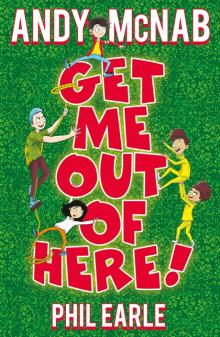 Get Me Out of Here!
Get Me Out of Here!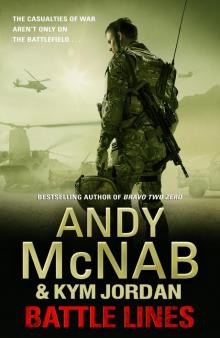 Battle Lines
Battle Lines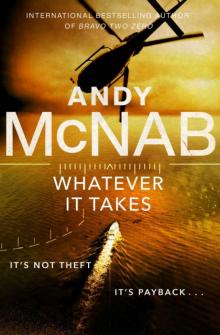 Whatever It Takes
Whatever It Takes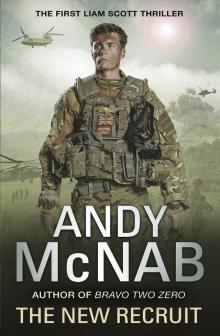 The New Recruit
The New Recruit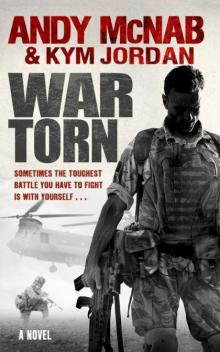 War Torn
War Torn Brute Force
Brute Force Crossfire
Crossfire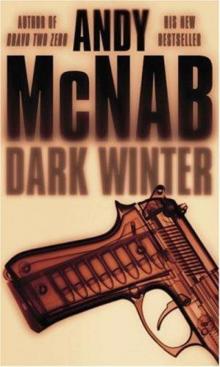 Dark Winter ns-6
Dark Winter ns-6 The Grey Man
The Grey Man Spoken from the Front
Spoken from the Front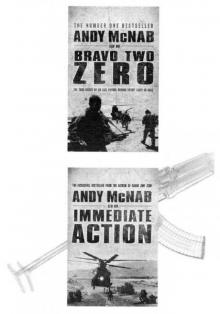 Meltdown
Meltdown Recoil
Recoil Nick Stone 1 - Remote Control.
Nick Stone 1 - Remote Control.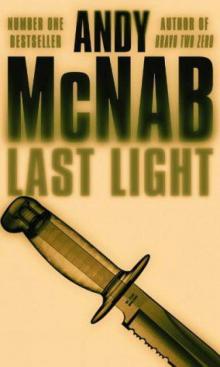 Last Light ns-4
Last Light ns-4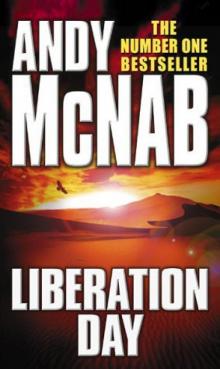 Liberation day
Liberation day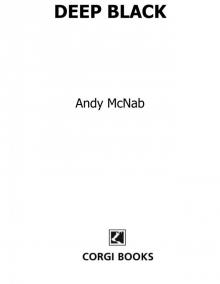 Deep Black
Deep Black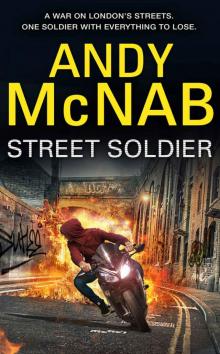 Street Soldier
Street Soldier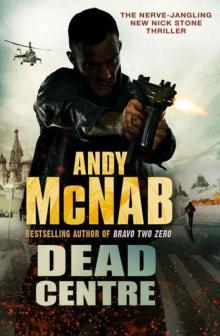 Dead Centre ns-14
Dead Centre ns-14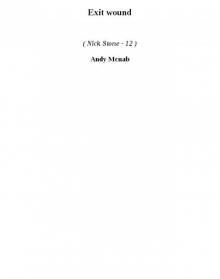 Exit wound ns-12
Exit wound ns-12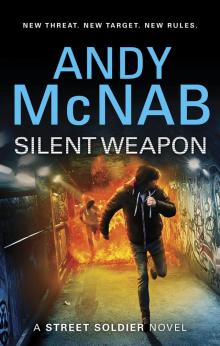 Silent Weapon
Silent Weapon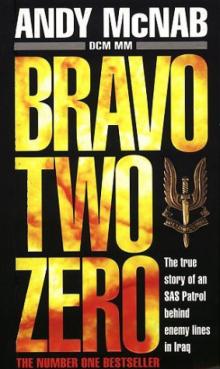 Bravo two zero
Bravo two zero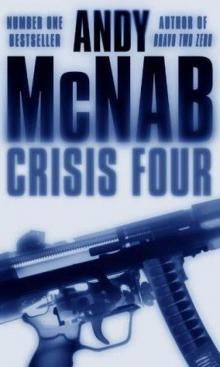 Crisis Four ns-2
Crisis Four ns-2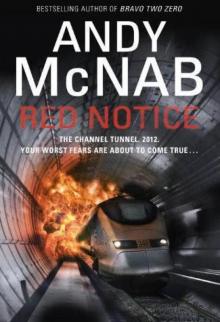 Red Notice
Red Notice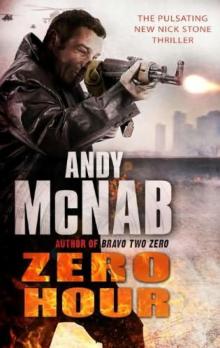 NS13 Zero Hour
NS13 Zero Hour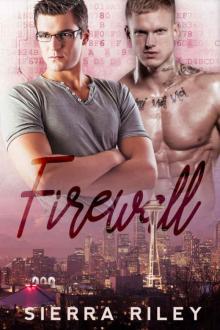 Firewall
Firewall Last Light
Last Light Aggressor
Aggressor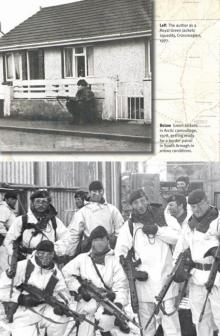 Seven Troop
Seven Troop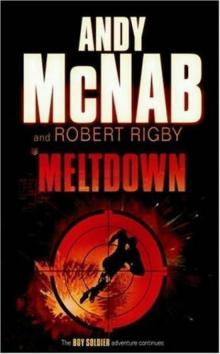 Meltdown bs-4
Meltdown bs-4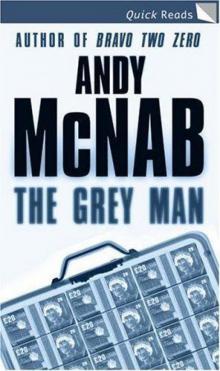 The Grey Man (quick reads)
The Grey Man (quick reads)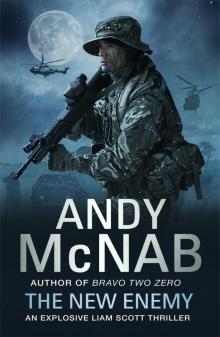 The New Enemy
The New Enemy Avenger
Avenger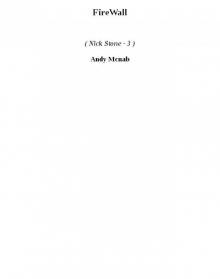 FireWall ns-3
FireWall ns-3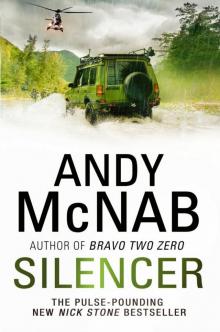 Silencer
Silencer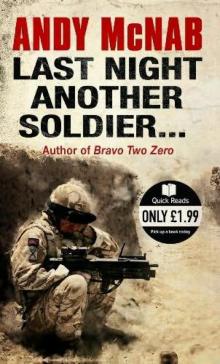 Last Night-Another Soldier…
Last Night-Another Soldier…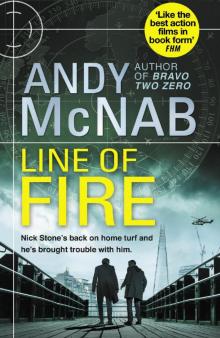 Line of Fire:
Line of Fire: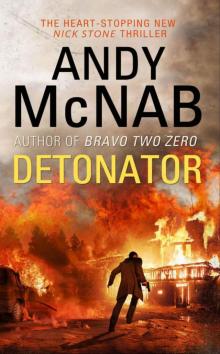 Detonator
Detonator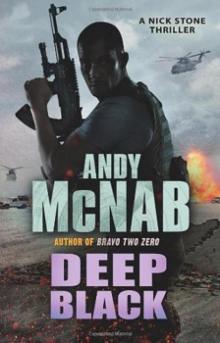 Deep Black ns-7
Deep Black ns-7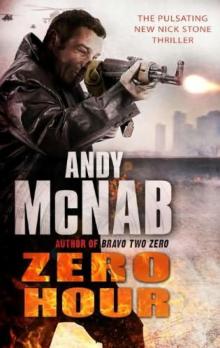 Zero Hour (2010) ns-13
Zero Hour (2010) ns-13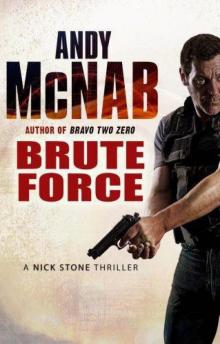 Brute Force ns-11
Brute Force ns-11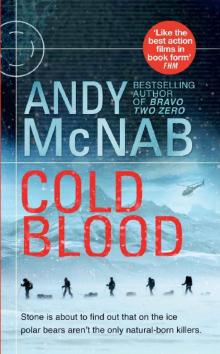 Cold Blood
Cold Blood Terminal Velocity
Terminal Velocity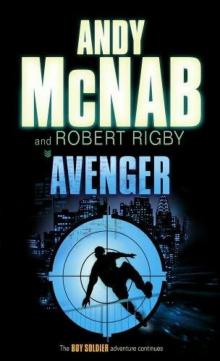 Avenger bs-3
Avenger bs-3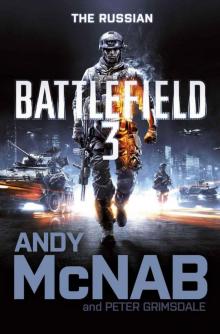 Battlefield 3: The Russian
Battlefield 3: The Russian DropZone
DropZone Zero Hour
Zero Hour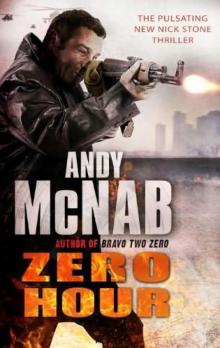 NS13 Zero Hour (2010)
NS13 Zero Hour (2010)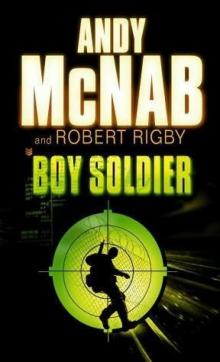 Boy soldier bs-1
Boy soldier bs-1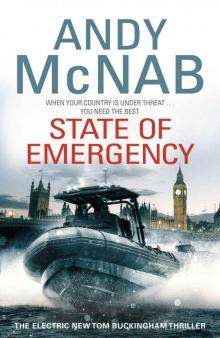 State Of Emergency: (Tom Buckingham Thriller 3)
State Of Emergency: (Tom Buckingham Thriller 3)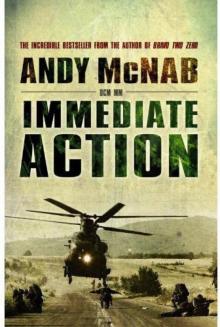 Immediate Action
Immediate Action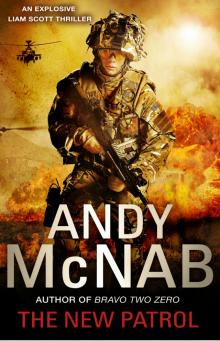 The New Patrol
The New Patrol Crisis Four
Crisis Four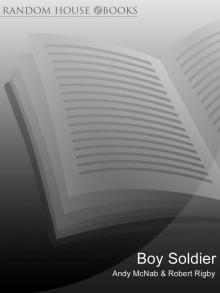 Boy Soldier
Boy Soldier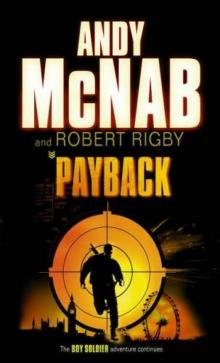 Payback bs-2
Payback bs-2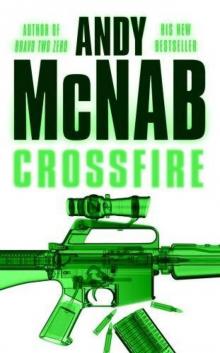 Crossfire ns-10
Crossfire ns-10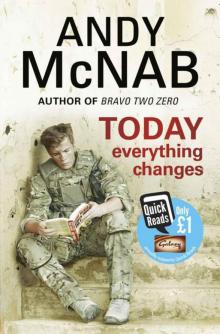 Today Everything Changes: Quick Read
Today Everything Changes: Quick Read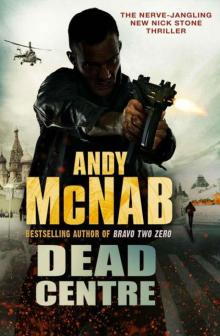 Dead Centre
Dead Centre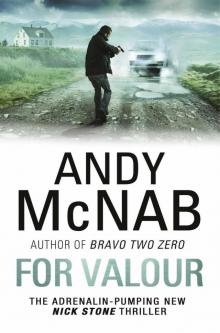 For Valour
For Valour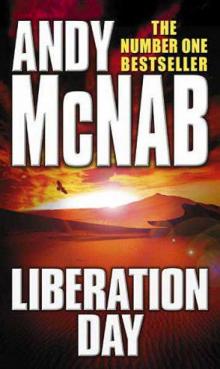 Liberation Day ns-5
Liberation Day ns-5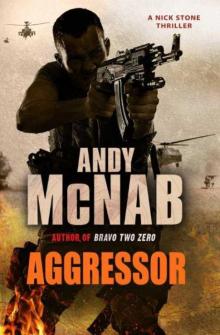 Aggressor ns-8
Aggressor ns-8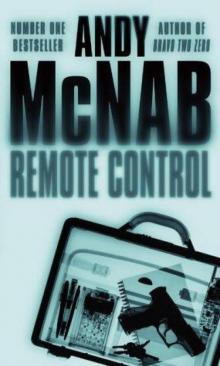 Remote Control ns-1
Remote Control ns-1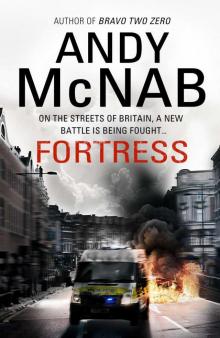 Fortress
Fortress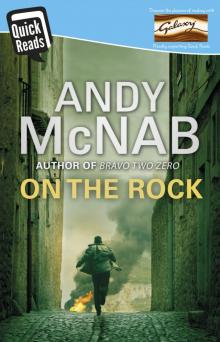 On the Rock
On the Rock Dark Winter
Dark Winter